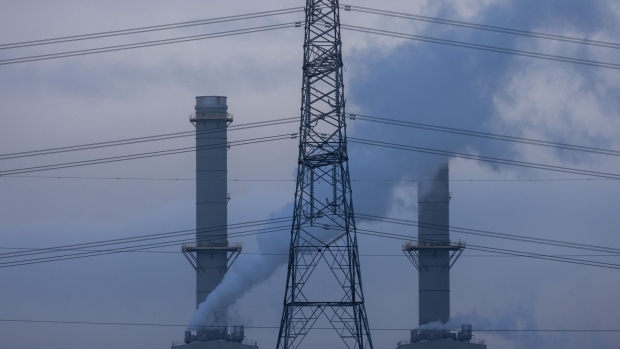Dec 13, 2022
UK Grid Paid £27 Million to Keep Lights on in Monday’s Freeze
, Bloomberg News

(Bloomberg) -- The UK grid spent more than £27 million ($33.5 million) in just one day paying power stations to crank up supplies at short notice, a cost that will ultimately fall on already stretched consumers.
One gas-fired power station operated by VPI Holding Ltd., a unit of Vitol Group, earned more than £11 million, according to figures from Enappsys Group Ltd. Another gas station owned by Intergen BV — Coryton — earned about £12.6 million.
Vitol’s Rye House station made as much as £6,000 per megawatt-hour on Monday afternoon. That’s about 100 times the normal price of power before the energy crisis.
When markets are tight, the grid has to balance supply and demand, including securing supplies quickly when necessary — sometimes at sky-high costs. The regulator is reviewing the rules that allow operators to make what it has called “excessive profits,” as balancing costs are ultimately passed on to consumers.
“It is likely we will see more days this winter where margins are tight,” said Rajiv Gogna, partner at LCP Delta. “These costs will be unwelcome news for consumers in the current climate.”
So-called balancing costs are passed back to consumers and National Grid Plc is under pressure to keep these from spiraling out of control. The UK has been subsidizing bills since October in an attempt to shield households from the impact of the worst energy crisis in decades, but the government has been forced to cut back on its support from April amid rising wholesale costs.
National Grid didn’t comment. Vitol also declined to respond.
The tally for the balancing mechanism on Monday was lower than the record £60 million reached in a single day in November last year. That prompted regulator Ofgem to look into “immoderate” behavior by plant operators.
The regulator is proposing a new license condition that will prevent stations from changing at the last moment the generation schedule they submit to National Grid when prices rise.
Read More: Vitol Cashes In as UK Consumers Pay Record Price for Power
In the three years to 2020, total balancing costs for November to February averaged just under £500 million each winter. For winter 2021/22 this rose to more than £1.5 billion, and to £3.1 billion for the whole year. That was due to higher prices rather than higher volumes, according to the regulator.
Ofgem will pay close attention to further incidents like Monday’s and will be “under increasing pressure to respond swiftly if there is a perception that such actions are materially increasing billpayers’ burden,” said Glenn Rickson, head of European power analysis, S&P Global Commodity Insights.
©2022 Bloomberg L.P.






